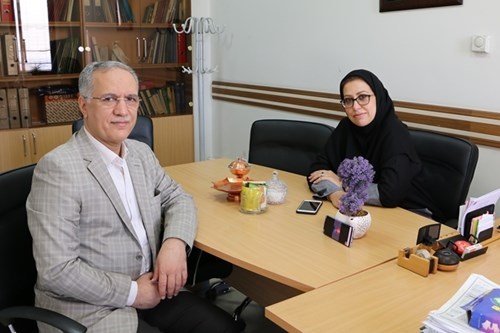The Reconstructive Medicine Fellowship Exam in Dentistry Was Held for the First Time in Iran

Dr. Bayat, while pointing out that this exam was held for the first time in Iran, said, "This exam was developed jointly by the School of Dentistry and the School of Advanced Technologies in Medicine, and obtained approval of both the TUMS Educational Development Center (EDC) office and the Secretariat of the Specialized Dental Education Council. The permission of holding the first exam was granted to the School of Dentistry".
He also stressed that the field of reconstructive medicine in dentistry is expanding in the world and can be useful and effective for patients, and hoped that graduates in this field will be able to actively expand the frontiers of knowledge and provide services to patients.
Dr. Bahrami, while thanking the Dean and Educational Vice-Dean of the School of Advanced Technologies in Medicine and also the officials of the School of Dentistry, stated that planning for the Reconstructive Medicine Fellowship Exam has been underway since 2017, and with the cooperation and follow-up of these two schools, this is the first time that this fellowship is held, and the fellowship is in fact a bridge between basic sciences and clinical sciences.
She also added that in terms of dental application, this specialty could be used in reconstruction of maxillofacial bones, reconstruction of bones around dental implants, reconstruction of lost teeth, as well as long-term cell therapy or the use of stem cells in the treatment of diseases, Bio-Printing Tissue (Personalized Medicine) and personal implants instead of the current metal implants.
It is worth noting that specialists and experts in this field hope that in the future they would be able to regenerate damaged tissues with the natural tissues of the patient's own body by these new method. Holding this fellowship will be hopefully an effective step in achieving this goal in Iran.

Your Comment :